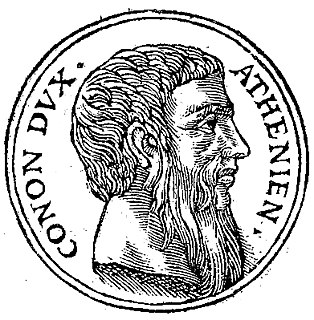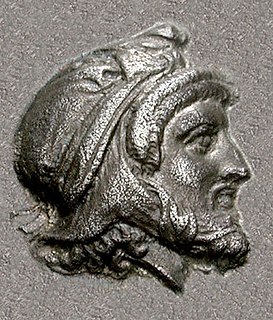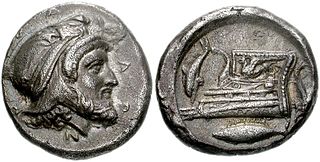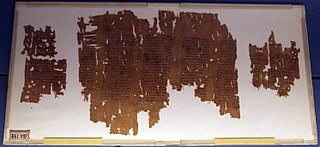| Millennium: | 1st millennium BC |
| Centuries: | |
| Decades: | |
| Years: | |
| Categories: |
This article needs additional citations for verification .(December 2021) |
This article concerns the period 399 BC – 390 BC.
| Millennium: | 1st millennium BC |
| Centuries: | |
| Decades: | |
| Years: | |
| Categories: |
This article needs additional citations for verification .(December 2021) |
This article concerns the period 399 BC – 390 BC.
== {{dr|y|y|{{1x|-}}{{{year}}}0|{{1x|-}}{{{1}}}|na}} == {{trim|{{transcluded section|{{dr|y|y|{{1x|-}}{{{year}}}0|{{1x|-}}{{{1}}}|na}}}} {{#section-h::{{dr|y|y|{{1x|-}}{{{year}}}0|{{1x|-}}{{{1}}}|na}}|Events}}}} == {{dr|y|y|{{1x|-}}{{{year}}}0|{{1x|-}}{{{1}}}|na}} == {{trim|{{transcluded section|{{dr|y|y|{{1x|-}}{{{year}}}0|{{1x|-}}{{{1}}}|na}}}} {{#section-h::{{dr|y|y|{{1x|-}}{{{year}}}0|{{1x|-}}{{{1}}}|na}}|Events}}}} == {{dr|y|y|{{1x|-}}{{{year}}}0|{{1x|-}}{{{1}}}|na}} == {{trim|{{transcluded section|{{dr|y|y|{{1x|-}}{{{year}}}0|{{1x|-}}{{{1}}}|na}}}} {{#section-h::{{dr|y|y|{{1x|-}}{{{year}}}0|{{1x|-}}{{{1}}}|na}}|Events}}}} == {{dr|y|y|{{1x|-}}{{{year}}}0|{{1x|-}}{{{1}}}|na}} == {{trim|{{transcluded section|{{dr|y|y|{{1x|-}}{{{year}}}0|{{1x|-}}{{{1}}}|na}}}} {{#section-h::{{dr|y|y|{{1x|-}}{{{year}}}0|{{1x|-}}{{{1}}}|na}}|Events}}}} == {{dr|y|y|{{1x|-}}{{{year}}}0|{{1x|-}}{{{1}}}|na}} == {{trim|{{transcluded section|{{dr|y|y|{{1x|-}}{{{year}}}0|{{1x|-}}{{{1}}}|na}}}} {{#section-h::{{dr|y|y|{{1x|-}}{{{year}}}0|{{1x|-}}{{{1}}}|na}}|Events}}}} == {{dr|y|y|{{1x|-}}{{{year}}}0|{{1x|-}}{{{1}}}|na}} == {{trim|{{transcluded section|{{dr|y|y|{{1x|-}}{{{year}}}0|{{1x|-}}{{{1}}}|na}}}} {{#section-h::{{dr|y|y|{{1x|-}}{{{year}}}0|{{1x|-}}{{{1}}}|na}}|Events}}}} == {{dr|y|y|{{1x|-}}{{{year}}}0|{{1x|-}}{{{1}}}|na}} == {{trim|{{transcluded section|{{dr|y|y|{{1x|-}}{{{year}}}0|{{1x|-}}{{{1}}}|na}}}} {{#section-h::{{dr|y|y|{{1x|-}}{{{year}}}0|{{1x|-}}{{{1}}}|na}}|Events}}}} == {{dr|y|y|{{1x|-}}{{{year}}}0|{{1x|-}}{{{1}}}|na}} == {{trim|{{transcluded section|{{dr|y|y|{{1x|-}}{{{year}}}0|{{1x|-}}{{{1}}}|na}}}} {{#section-h::{{dr|y|y|{{1x|-}}{{{year}}}0|{{1x|-}}{{{1}}}|na}}|Events}}}} == {{dr|y|y|{{1x|-}}{{{year}}}0|{{1x|-}}{{{1}}}|na}} == {{trim|{{transcluded section|{{dr|y|y|{{1x|-}}{{{year}}}0|{{1x|-}}{{{1}}}|na}}}} {{#section-h::{{dr|y|y|{{1x|-}}{{{year}}}0|{{1x|-}}{{{1}}}|na}}|Events}}}}
== {{ucfirst:{{{1}}}}} == {{preprocess|{{((}}transcluding articles {{!}} {{for loop|{{!}}|call=Year article|pc1n=1|pc1v={{{decade}}}0|pv=2|-9|-8|-7|-6|-5|-4|-3|-2|-1}} {{!}} {{#ifeq:{{{decade}}}|-0|{{void|There is no BC year 0}}|{{Year article|{{{decade}}}0}}}} {{))}}}} {{for loop| |call=Transclude {{{1}}}|{{{decade}}}9|{{{decade}}}8|{{{decade}}}7|{{{decade}}}6|{{{decade}}}5|{{{decade}}}4|{{{decade}}}3|{{{decade}}}2|{{{decade}}}1}} {{#ifeq:{{{decade}}}|-0|{{void|There is no BC year 0}}| {{Transclude {{{1}}}|{{{decade}}}0}} }} == {{ucfirst:{{{1}}}}} == {{preprocess|{{((}}transcluding articles {{!}} {{for loop|{{!}}|call=Year article|pc1n=1|pc1v={{{decade}}}0|pv=2|-9|-8|-7|-6|-5|-4|-3|-2|-1}} {{!}} {{#ifeq:{{{decade}}}|-0|{{void|There is no BC year 0}}|{{Year article|{{{decade}}}0}}}} {{))}}}} {{for loop| |call=Transclude {{{1}}}|{{{decade}}}9|{{{decade}}}8|{{{decade}}}7|{{{decade}}}6|{{{decade}}}5|{{{decade}}}4|{{{decade}}}3|{{{decade}}}2|{{{decade}}}1}} {{#ifeq:{{{decade}}}|-0|{{void|There is no BC year 0}}| {{Transclude {{{1}}}|{{{decade}}}0}} }}

This article concerns the period 409 BC – 400 BC.
This decade witnessed the continuing decline of the Achaemenid Empire, fierce warfare amongst the Greek city-states during the Peloponnesian War, the ongoing Warring States period in Zhou dynasty China, and the closing years of the Olmec civilization in modern-day Mexico.
This article concerns the period 379 BC – 370 BC.
This article concerns the period 389 BC – 380 BC.
This article concerns the period 369 BC – 360 BC

Lysander was a Spartan military and political leader. He destroyed the Athenian fleet at the Battle of Aegospotami in 405 BC, forcing Athens to capitulate and bringing the Peloponnesian War to an end. He then played a key role in Sparta's domination of Greece for the next decade until his death at the Battle of Haliartus.
Year 405 BC was a year of the pre-Julian Roman calendar. At the time, it was known as the Year of the Tribunate of Barbatus, Capitolinus, Cincinnatus, Medullinus, Iullus and Mamercinus. The denomination 405 BC for this year has been used since the early medieval period, when the Anno Domini calendar era became the prevalent method in Europe for naming years.
Year 396 BC was a year of the pre-Julian Roman calendar. At the time, it was known as the Year of the Tribunate of Saccus, Capitolinus, Esquilinus, Augurinus, Capitolinus and Priscus. The denomination 396 BC for this year has been used since the early medieval period, when the Anno Domini calendar era became the prevalent method in Europe for naming years.
Year 406 BC was a year of the pre-Julian Roman calendar. At the time, it was known as the Year of the Tribunate of Cossus, Ambustus, Cossus and Potitus. The denomination 406 BC for this year has been used since the early medieval period, when the Anno Domini calendar era became the prevalent method in Europe for naming years.
Year 395 BC was a year of the pre-Julian Roman calendar. At the time, it was known as the Year of the Tribunate of Cossus, Medullinus, Scipio, Fidenas, Ambustus and Lactucinus. The denomination 395 BC for this year has been used since the early medieval period, when the Anno Domini calendar era became the prevalent method in Europe for naming years.

Conon was an Athenian general at the end of the Peloponnesian War, who led the Athenian naval forces when they were defeated by a Peloponnesian fleet in the crucial Battle of Aegospotami; later he contributed significantly to the restoration of Athens' political and military power.
Year 394 BC was a year of the pre-Julian Roman calendar. At the time, it was known as the Year of the Tribunate of Camillus, Poplicola, Medullinus, Albinus, Mamercinus and Scipio. The denomination 394 BC for this year has been used since the early medieval period, when the Anno Domini calendar era became the prevalent method in Europe for naming years.
Year 393 BC was a year of the pre-Julian Roman calendar. At the time, it was known as the Year of the Consulship of Potitus and Maluginensis. The denomination 393 BC for this year has been used since the early medieval period, when the Anno Domini calendar era became the prevalent method in Europe for naming years.
Year 392 BC was a year of the pre-Julian Roman calendar. At the time, it was known as the Year of the Consulship of Poplicola and Capitolinus. The denomination 392 BC for this year has been used since the early medieval period, when the Anno Domini calendar era became the prevalent method in Europe for naming years.

Antalcidas, son of Leon, was an ancient Greek soldier, politician, and diplomat from Sparta.

Arses, known by his regnal name Artaxerxes II, was King of Kings of the Achaemenid Empire from 405/4 BC to 358 BC. He was the son and successor of Darius II and his mother was Parysatis.

Pharnabazus II was a Persian soldier and statesman, and Satrap of Hellespontine Phrygia. He was the son of Pharnaces II of Phrygia and grandson of Pharnabazus I, and great-grandson of Artabazus I. He and his male ancestors, forming the Pharnacid dynasty, had governed the satrapy of Hellespontine Phrygia from its headquarters at Dascylium since 478 BC. He married Apama, daughter of Artaxerxes II of Persia, and their son Artabazus also became a satrap of Phrygia. According to some accounts, his granddaughter Barsine may have become Alexander the Great's concubine.

The Corinthian War was a conflict in ancient Greece which pitted Sparta against a coalition of city-states comprising Thebes, Athens, Corinth and Argos, backed by the Achaemenid Empire. The war was caused by dissatisfaction with Spartan imperialism in the aftermath of the Peloponnesian War, both from Athens, the defeated side in that conflict, and from Sparta's former allies, Corinth and Thebes, who had not been properly rewarded. Taking advantage of the fact that the Spartan king Agesilaus II was away campaigning in Asia against the Achaemenid Empire, Thebes, Athens, Corinth and Argos forged an alliance in 395 BC with the goal of ending Spartan hegemony over Greece; the allies' war council was located in Corinth, which gave its name to the war. By the end of the conflict, the allies had failed to end Spartan hegemony over Greece, although Sparta was durably weakened by the war.

The Battle of Cnidus was a military operation conducted in 394 BC by the Achaemenid Empire against the Spartan naval fleet during the Corinthian War. A fleet under the joint command of Pharnabazus and former Athenian admiral, Conon, destroyed the Spartan fleet led by the inexperienced Peisander, ending Sparta's brief bid for naval supremacy.

Hellenica simply means writings on Greek (Hellenic) subjects. Several histories of 4th-century Greece, written in the mould of Thucydides or straying from it, have borne the conventional Latin title Hellenica. The surviving Hellenica is an important work of the Ancient Greek writer Xenophon and one of the principal sources for the last seven years of the Peloponnesian War not covered by Thucydides, as well as the war's aftermath.